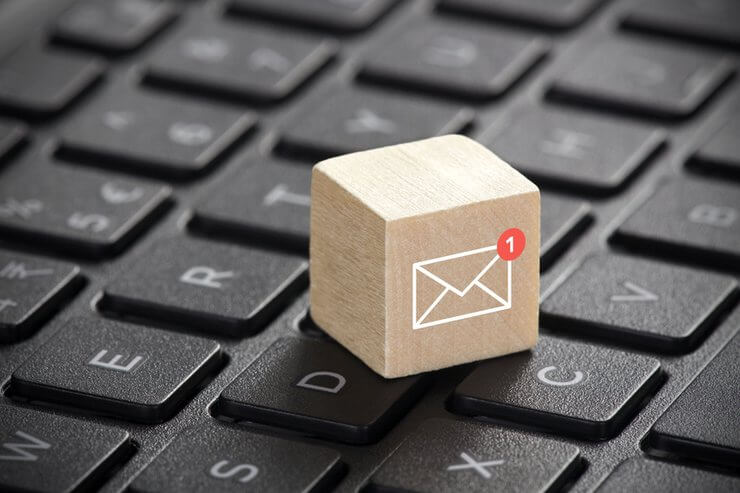
Phew! All of your panic and anxiety is over. You have just finished your job interview and you can let out a big sigh of relief!
You go home to reflect on your interview and conclude that it went really well, you put in a good performance, answered all of your interview questions competently, asked plenty of questionsof your own, and you are pretty confident that you stand a good chance of landing your dream job.
A few days go past and now you are starting to wonder why you haven’t heard anything back from the employer about your interview and whether or not you have been successful. If it has been a while since you have had no response, then it is time to get pro-active with a well-written follow-up email.
Be Careful About Your Timing
While sending a follow-up email is a fantastic idea to help keep your job application and interview at the forefront of the employer’s mind, don’t push your luck by sending your follow-up email too soon.
Remember that it takes time for the company to work through their interview list and then consult with each other about their final hiring decisions. Firing off a follow-up email the day after your interview may come across as being a little pushy.
While there is no harm in sending a quick one-line thank you email as a polite note to the employer immediately following your interview, there is a big difference between a polite thank you and a strong follow-up email. We will look at both here.
Sample Thank You Email After Interview
A simple thank you email following your job interview is a powerful tool. Sending a thank you for your time and the chance of an interview shows that you really are appreciative of their time and that you valued the opportunity given to you.
Your ‘thank you’ email can also help to keep your interview fresh in the minds of the employer. It can act as a memory jolt after what could have been a long few days of back to back interviews.
We would suggest you to send your “thank you” email to the person at the company that you have been talking to and helped to arrange your interview. If you made a note of the name of your interviewer on the day, you could look them up on the company website and find their contact email. Include both contact email addresses.
So, what to write in your thank you email? Firstly, your email subject line is very important here. This is what will decide whether your email is opened or not by your recipient.
Your subject line could look something like this:
“Re: Interview on Thursday 12th at 10 AM”
Or:
“Thank you for my interview on 12th September”
The main body of the email should be short and sweet. You simply need to say something like:
“I would personally like to thank you for inviting me for an interview on 12th September for the position of (insert the job title here).
I appreciated your time and found the interview to be valuable and very interesting.
Please do not hesitate to contact me if you require any further information from me that can help with your decision making”
Sending a straight-forward thank you message such as this and finishing off your email with an open offer for them to contact you for more information will show the employer that following your interview you are still interested in the job. It also keeps the lines of communication open between you and the employer.
Second Follow Up Email After Interview
Whether you decide to send a simple thank you email immediately after your job interview, it will be wise to send a more comprehensive follow-up email shortly after that which will serve to reinforce and support your job application.
Your second follow up email can be a useful tool to help resolve any issues that may have arisen during your interview. For example, if you felt that your nerves had got the better of you during your interview and you were asked one or two questions that you felt you didn’t answer as completely or as confidently as you could have, then now is your opportunity to clarify and address your concerns.
Explain in the email that you didn’t feel that you offered a full response to their question and would like to take this chance to answer more fully.
Repeat the question asked of you during your interview and then provide a more detailed response. This will help to reassure the employer that you fully understood the question asked but that your interview nerves got the better of you.
Tips For Writing A Strong Follow-Up Email
Make sure you set a positive tone with your email. Try to reinforce the reasons why you believe you are a good fit for the role on offer.
Include any valuable information that you didn’t get the time to pass on to your interviewer. You may have run out of time and failed to mention an example of where you demonstrated your skills as a team leader or how you devised a new workplace procedure that helped to improve productivity levels by 20%.
Clarify and answer any interview questions that you felt you didn’t answer very well. Interviewers know that job candidates get nervous during their interviews, so will understand if you occasionally stumble over an answer.
Don’t Forget To Edit Your Follow Up Email
While you may have performed perfectly during your interview and created a fantastic first impression, you don’t want to let yourself down by firing off a careless and hastily put together follow up email.
We spend so much time perfecting our resume and polishing our interview techniques that we often overlook other key areas of our job application – the follow-up email.
Revise and edit your follow up email over and over again. Make sure you read through your email very carefully and look for spelling errors. Remember that the employer will still be judging you by your actions so you will want to make a positive and strong impression with every form of communication you have with them.
Even if you handled your interview very smoothly, sending a follow-up email that is full of typos is going to cast a shadow over your application and harm your chances. For grammar and spelling, you can use a free tool such as Grammarly .
Sample Of Follow Up Email After Interview
The whole purpose of sending a follow-up email after your job interview is to emphasize your value to the employer. You will be surprised at how many people don’t bother to use this valuable tool to help boost their job chances, but many candidates do so you still need to do this right!
For your follow up email, it can help to send it as a reply to an already established email thread that you have with the employer. This means that you stand a better chance of getting your email opened quickly as it looks like a continuation of an established conversation rather than a brand new one.
Let’s look at a sample email that you can take and amend to suit your needs. This is a straight-forward template that you can use where you felt everything went OK during your interview.
However, should you need to include any extra information, you can tailor this sample and insert a short section to include your extra information that you feel is crucial to your recruitment chances.
“Dear insert name (greet the interviewer by their first name if possible)
“I am following up with regard to my job interview on (date and time) for the position of (job title).
I would like to confirm that I am still interested in the position on offer and was excited to learn more about your company from my interview. I am keen to learn about the next steps I can take to help with your decision making.
Please could you update me with your progress and let me know if there is any more information that you would like me to supply in support of my application.
I am looking forward to hearing back from you.
Once again – thank you for your time and consideration of me for this position with your company.
Signed (sign off with your first and last name)”
Keep your follow up email short and to the point. You should also keep your email well spaced out to make it easy to read.
Spell check and proofread it over again to make sure it is completely free of errors. You simply cannot afford to make a costly mistake here that can make your preparation look sloppy. Source
- HDFC Future Bankers Recruitment 2024 Latest Private Job Opportunities - 15/04/2024
- The Benefits of Working in Government Legal Jobs - 24/02/2024
- Top Highest Paying Bank Jobs in Hyderabad - 22/02/2024



